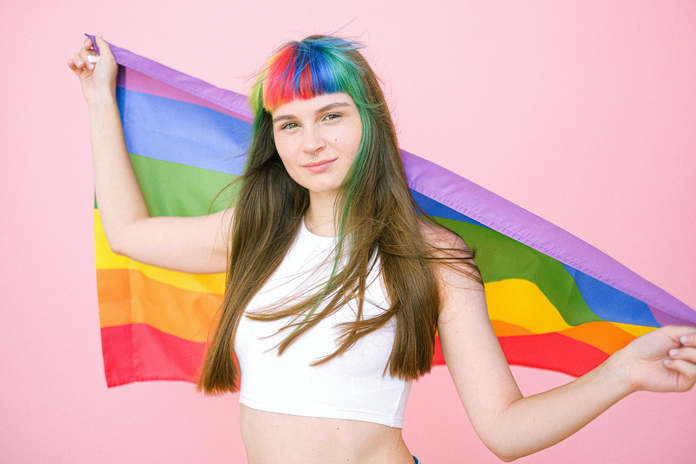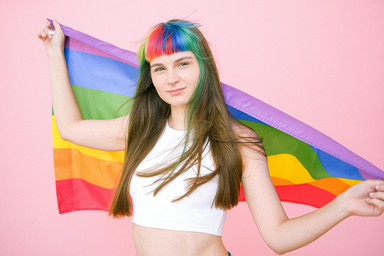TW: Mentions of Suicide
The discourse of homophobia is usually centred around the issues faced by gay cis men. Be it physical spaces meant for queer individuals — such as gay bars, queer museums and societies — or the laws surrounding marriage inequality in countries across the globe, gay men dominate almost everywhere. This creates an unfair power dynamic within the LGBTQI+ community, eventually leading to the rights and dilemmas of lesbians being overlooked and ignored. Not only does this encourage lesbophobia from people outside the queer community, but even disregards the lesbians within the community.
Jane Czyzselska, in a Guardian article published in 2013, defines lesbophobia as “…homophobia with a side-order of sexism. It’s homophobia directed particularly at lesbians.” Most people might be blind to it, but lesbophobia exists in each comment which starts with, “You don’t look like a lesbian,” to questions that ends with, “Is your father okay with it?” Such remarks are predominantly directed towards lesbians—the first thing that would come to a person’s mind when they find out that a man they know is homosexual wouldn’t really be about whether or not his father is okay with it. Many a time, even people who refer to themselves as allies solely support queer men, AMABs and mascs while dismissing the existence of lesbians—mostly, femme lesbians—altogether.
The previous point isn’t to say that lesbians need or wish for their identities to be validated by those who are clearly misogynistic; most lesbians don’t even wish to engage with individuals who might view and scrutinise them through the male gaze. The problem, however, arises when they are unnecessarily objectified and sexualised by the lesbophobic crowd and when they aren’t allowed to raise their concerns. Contrary to notions that most people usually have about the entire LGBTQI+ community, the issues faced by lesbians are quite different from those faced by gay men. Gay men, for instance, have the privilege of being able to fight for marriage equality when lesbian relationships aren’t even acknowledged in most societies, thus making their priorities different in unimaginable ways.
In their paper on femininity and sexuality, Yael Mishali talks about Andrea Dworkin’s thoughts on feminine gender and sexual practices. They write:
“Her configuration of an unbreakable connection between femininity and the fulfilment of men’s needs does not allow for an imagining of femininity outside the heterosexual economy, that is, of femininity that marks an attempt at self definition and subjectification rather than victimisation and objectification.“
Since most economies and societies in the world are extremely phallocratic, there is very little cognisance taken of the sexual desires and identities of non-cis men, especially femmes.
Furthermore, EuroCentralAsian Lesbian* Community (EL*C)’s report on lesbophobia explained how “…lesbian-led organisations, as well as politicians and journalists who are lesbian, bisexual or queer, find themselves subject to these particularly vicious attacks.” The report does on to highlight the various “mental health inequalities” that exist within the queer community, thus leading to a higher suicide rate among the lesbians.
Whether the world chooses to believe it or not, lesbianism is neither all about sapphic love poetry nor limited to what “happens in the bedroom”. Telling femme lesbians that they are “too feminine to be homosexual” or asking them whether they’re “sure about not being into men” is not just lesbophobia, but even a form of harassment. Additionally, supporting solely gay cis men while treating lesbians as if they’re unimportant isn’t allyship. If anything, it is oppressive behaviour that deserves to be called out.


